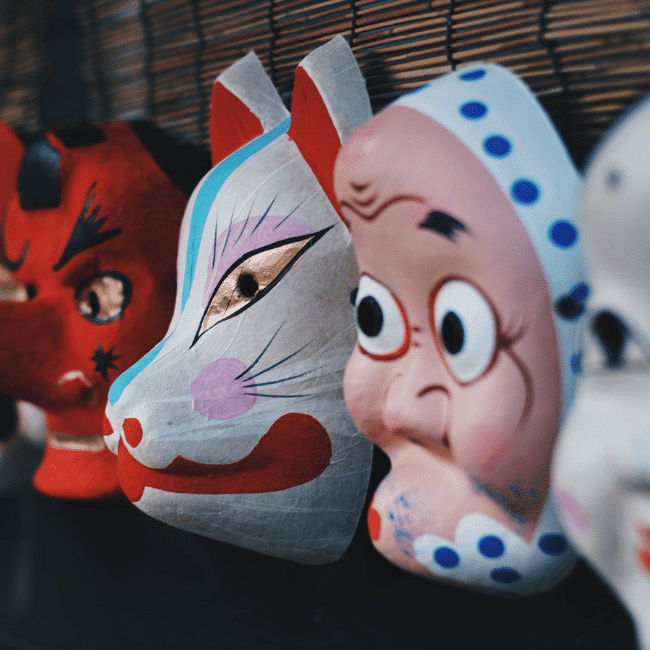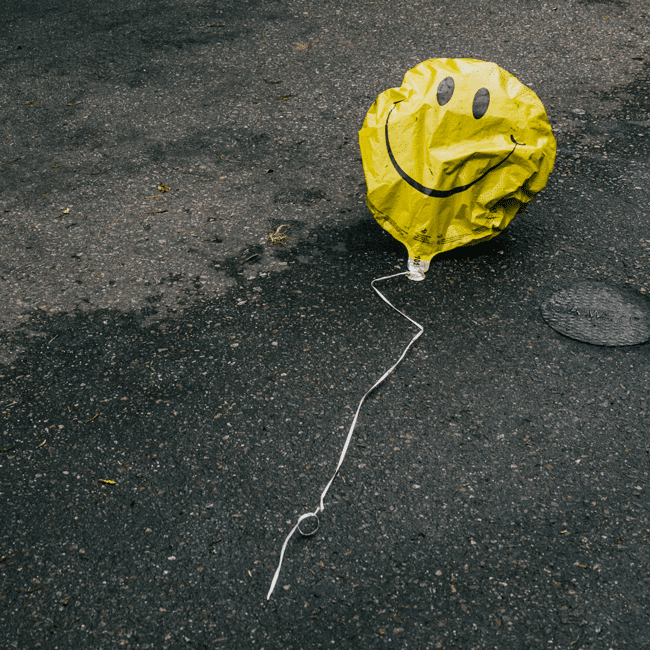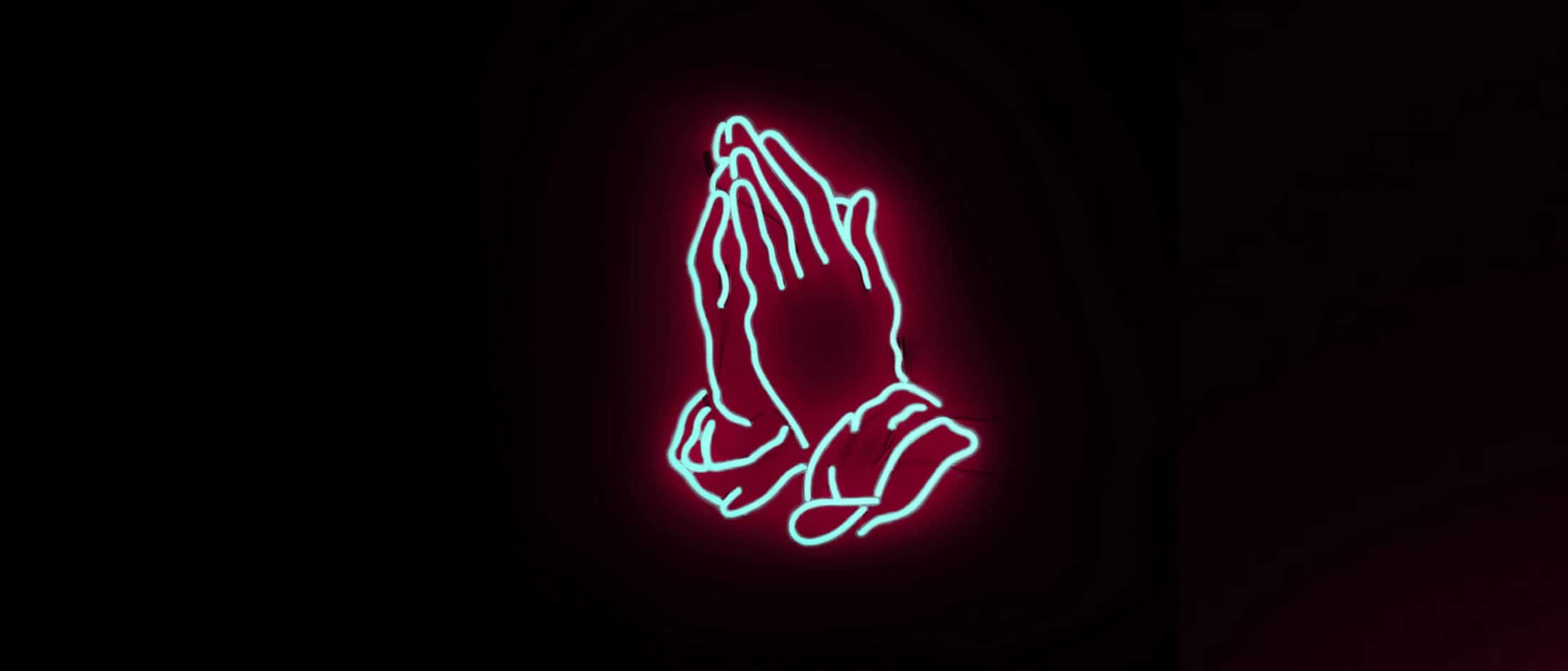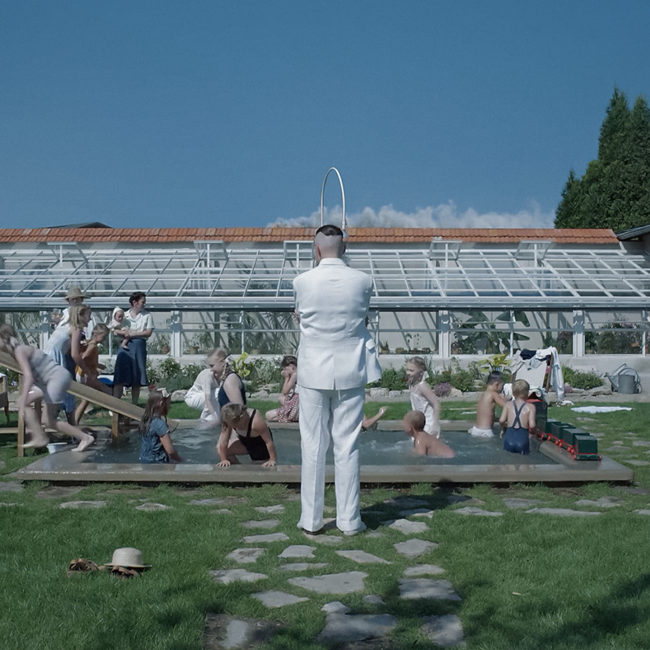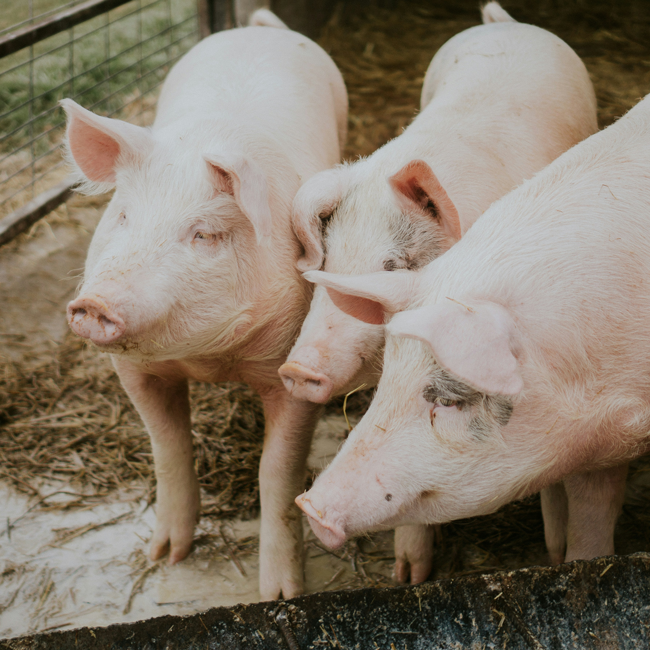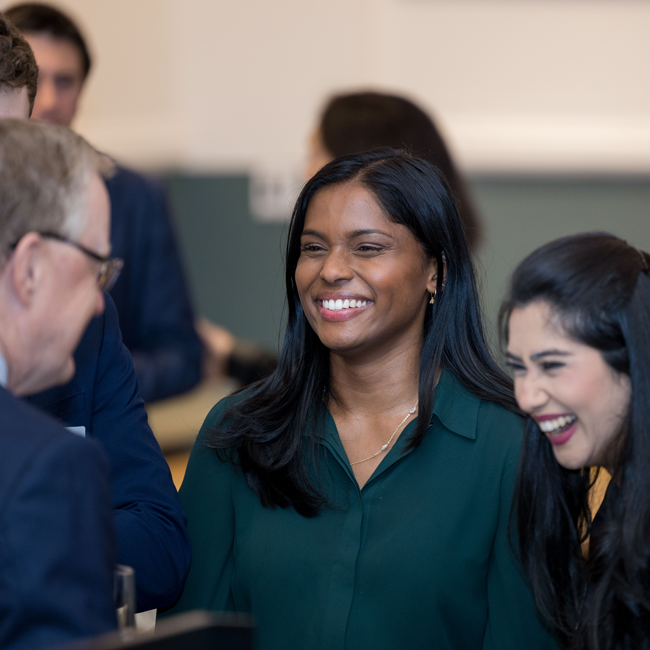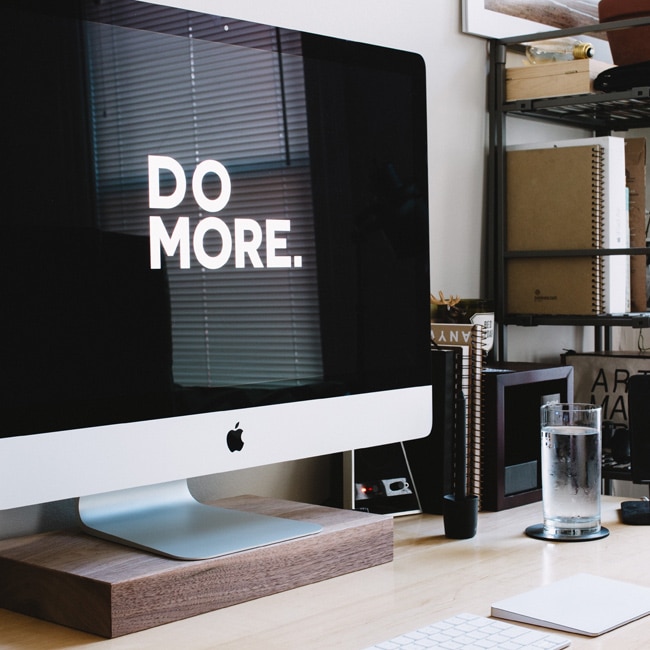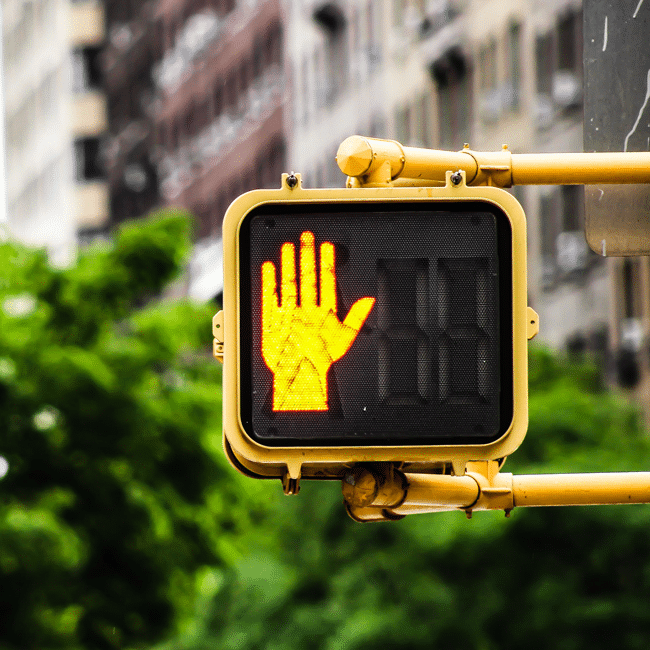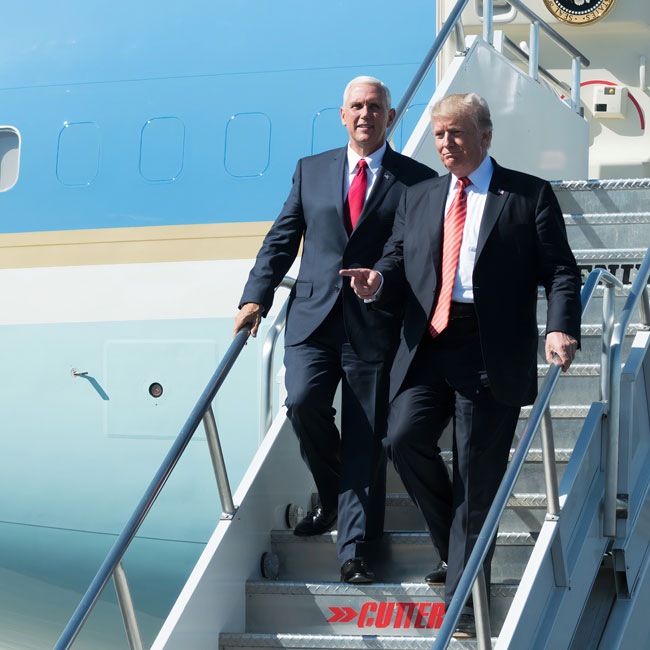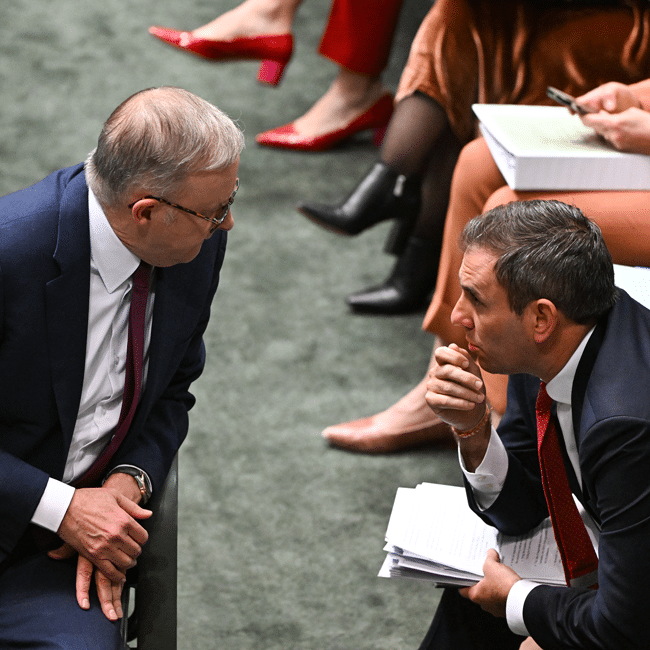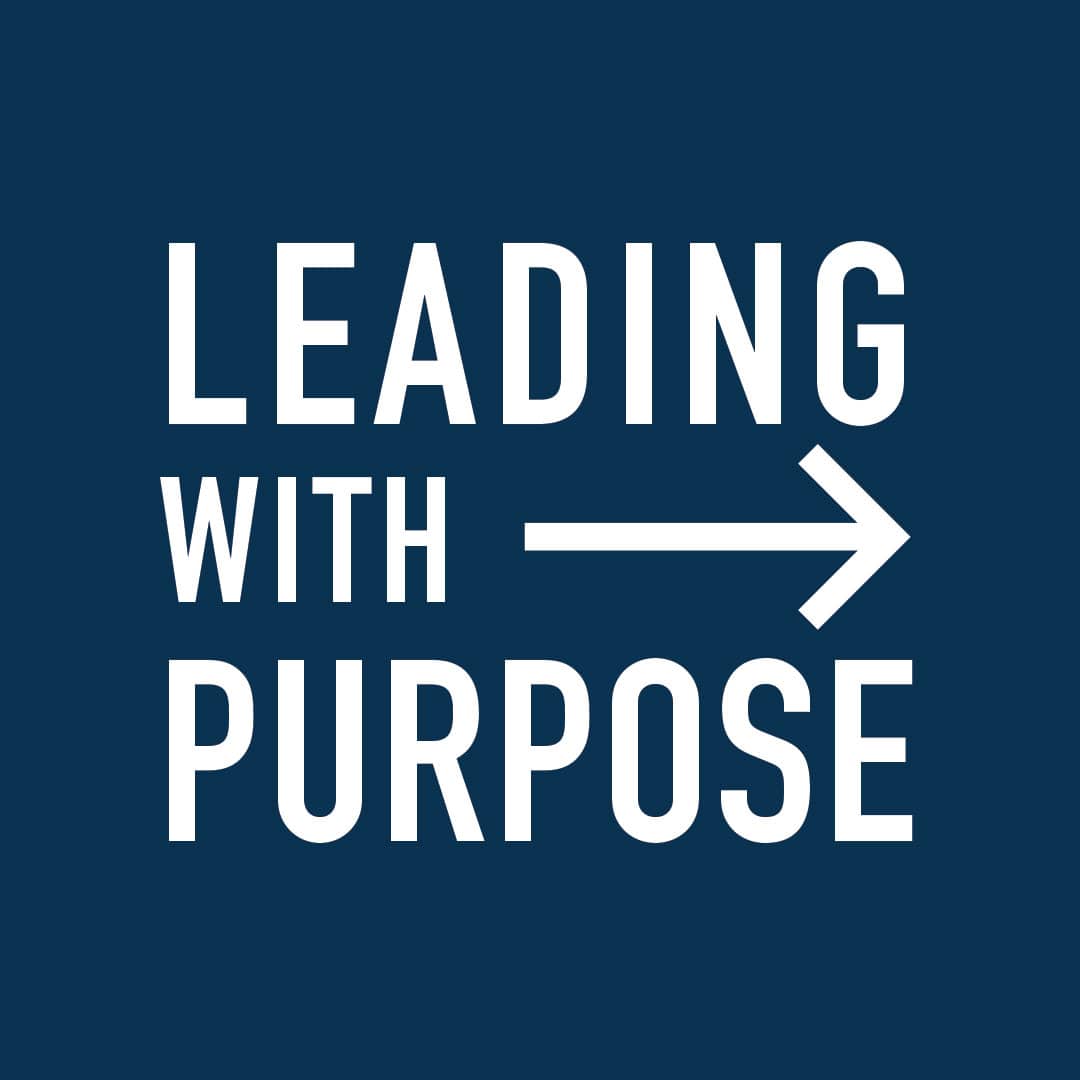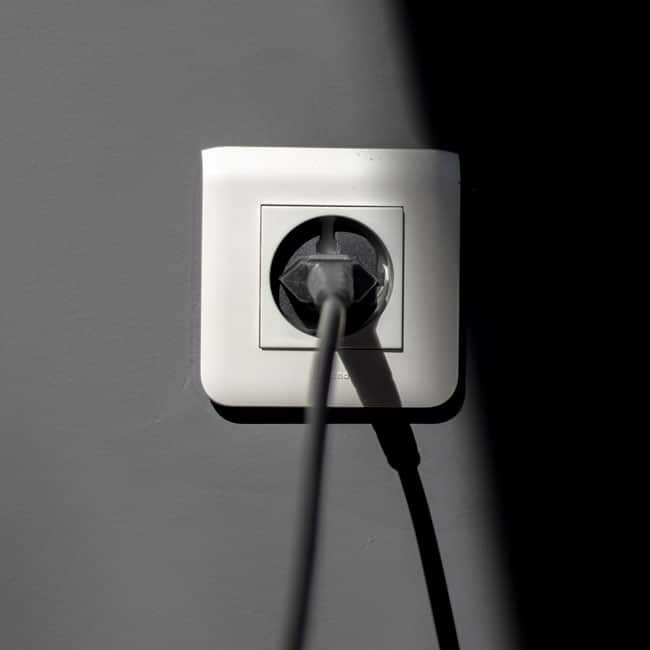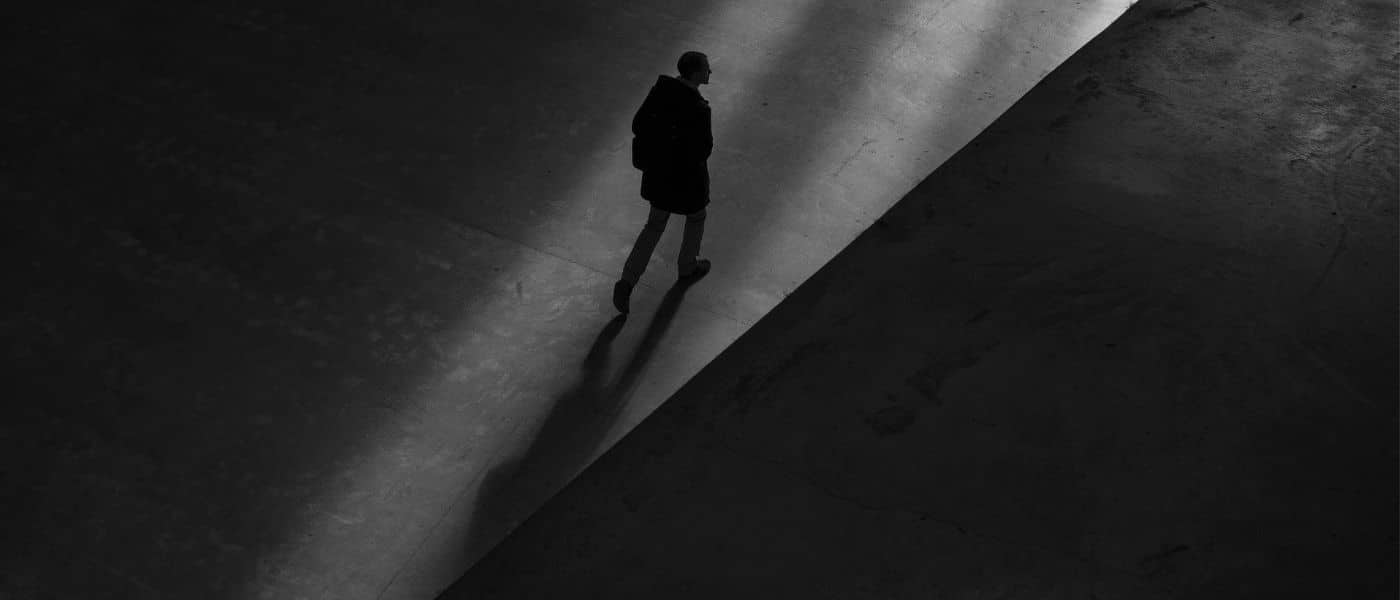Losing the thread: How social media shapes us

Losing the thread: How social media shapes us
Opinion + AnalysisSociety + CultureRelationships
BY Daniel Finlay The Ethics Centre 4 MAR 2024
“I feel like I invited two friend groups to the same party.”
The slowly spiralling mess that is Twitter received another beating last year in the form of a rival platform announcement: Threads. And although this was a potentially exciting development for all the scorned tweeters out there, amid the hype, noise and hubbub of this new platform I noticed something interesting.
Some people weren’t sure how to act.
Twitter has long been associated with performative behaviour of many kinds (as well as genuine activism and journalism of many kinds). Influencers, comedians, politicians and every aspiring Joe Schmoe adopt personas that often amount to some combination of sarcastic, cynical, snarky and bluntly relatable.
Now, you would think that people migrating to a rival app with ostensibly the same function would just port these personas over. And you would be right, except for the hiccup of Threads being tied directly to Instagram accounts.
Why does this matter? As many users have pointed out, the kinds of things people say and do on Twitter and Instagram are markedly different, partially because of the different audiences and partially because of the different medium focus (visual versus textual). As a result, some people are struggling with the concept of having family and friends viewing their Twitter-selves, so to speak.
These posts can of course be taken with a grain of salt. Most people aren’t truly uncomfortable with recreating their Twitter identities on Threads. In fact, somewhat ironically, reinforcing their group identity as “(ex-)Twitter users” is the underlying function of these posts – signalling to other tweeters that “Hey, I’m one of you”.
The incongruity between Instagram and Twitter personas or expression has been pointed out by some others in varying depth and is something you might have noticed yourself if you spend much of your free time on either platform. In short, Instagram is mostly a polished, curated, image-first representation of ourselves, whereas Twitter is mostly a stream-of-consciousness conversation mill (which lends itself to more polarising debate). There are plenty of overlapping users, but the way they appear on each platform is often vastly different.
With this in mind, I’ve been thinking: How do our online identities reflect on us? How do these identities shape how we use other platforms? Do social media personas reflect a type of code-switching or self-monitoring, or are they just another way of pandering to the masses?
What does it say about us when we don’t share certain aspects of ourselves with certain people?
This apparent segmentation of our personality isn’t new or unique to social media. I’m sure you can recall a moment of hesitation or confusion when introducing family to friends, or childhood friends to hobby friends, or work friends to close friends. It’s a feeling that normally stems from having to confront the (sometimes subtle) ways that we change the way we speak and act and are around different groups of people.
Maybe you’re a bit more reserved around colleagues, or more comical around acquaintances, or riskier with old friends. Whatever it is, having these worlds collide can get you questioning which “you” is really you.
There isn’t usually an easy answer to that, either. Identity is a slippery thing that philosophers and psychologists and sociologists have been wrangling for a long time. One basic idea is that humans are complex, and we can’t be expected to be able to communicate or display all the elements of our psyche to every person in our lives in the same ways. While that’s a tempting narrative, it’s important to be aware of the difference between adapting and pandering.
Adapting is something we all do to various degrees.
In psychology, it’s called self-monitoring – modifying our behaviours in response to our environment or company. This can be as simple as not swearing in front of family or speaking more formally at work. Sometimes adapting can even feel like a necessity. People on the autism spectrum often “mask” their symptoms and behaviours by supressing them and/or mimicking neurotypical behaviours to fit in or avoid confrontation.
In lots of ways, social media has enhanced our ability to adapt. The way we appear online can be something highly crafted, but this is where we can sometimes run into the issue of pandering. In this context, by pandering I mean inauthentically expressing ourselves for some kind of personal gain. The key issue here is authenticity.
As Dr Tim Dean said in an earlier article in this series, “you can’t truly understand who someone is without also understanding all the groups to which they belong”. In many ways, social media platforms constitute (and indicate further) groups to which we belong, each with their own styles, tones, audiences, expectations and subcultures. But it is this very scaffolding that can cause people to pander to their in-groups, whether it simply be to fit in, or in search of power, fame or money.
I want to stress that even pandering in and of itself isn’t necessarily unethical. Sometimes pandering is something we need to do; sometimes it’s meaningless or harmless. However, sometimes it amounts to a violation of our own values. Do we really want to be the kinds of people who go against our principles for the sake of fitting in?
That’s what struck me when I read all of the confused messaging on the release of Threads. It’s one thing to not value authenticity very highly; it’s another to disvalue it completely by acting in ways that oppose our core values and principles. Sometimes social media can blur these lines. When we engage in things like mindless dogpiling or reposting uncited/unchecked information, we’re often acting in ways we wouldn’t act elsewhere without realising it, and that’s worth reflecting on.
It’s certainly something that I’ve noticed myself reflecting on since then. For some, our online personas can be an outlet for aspects of our personality that we don’t feel welcome expressing elsewhere. But for others, the ease with which social media allows us to craft the way we present poses a challenge to our sense of identity.

Ethics in your inbox.
Get the latest inspiration, intelligence, events & more.
By signing up you agree to our privacy policy
You might be interested in…
Opinion + Analysis
Climate + Environment, Politics + Human Rights, Relationships
This is what comes after climate grief
Opinion + Analysis
Science + Technology, Society + Culture
AI is not the real enemy of artists
Opinion + Analysis
Relationships
The niceness trap: Why you mustn’t be too nice
Opinion + Analysis
Politics + Human Rights, Relationships
When human rights complicate religious freedom and secular law
BY Daniel Finlay
Daniel is a philosopher, writer and editor. He works at The Ethics Centre as Youth Engagement Coordinator, supporting and developing the futures of young Australians through exposure to ethics.
BY The Ethics Centre
The Ethics Centre is a not-for-profit organisation developing innovative programs, services and experiences, designed to bring ethics to the centre of professional and personal life.
AI might pose a risk to humanity, but it could also transform it

AI might pose a risk to humanity, but it could also transform it
Opinion + AnalysisScience + TechnologyBusiness + LeadershipSociety + Culture
BY Simon Longstaff 27 FEB 2024
It’s no secret that the world’s largest and most powerful tech companies, including Google, Amazon, Meta and OpenAI, have a single-minded focus on creating Artificial General Intelligence (AGI). Yet we currently know as little about what AGI might look like as we do about the risks that it might pose to humanity.
It is essential that debates around existential risk proceed with an urgency that tries to match or eclipse the speed of developments in the technology (and that is a tall order). However, we cannot afford to ignore other questions – such as the economic and political implications of AI and robotics for the world of work.
We have seen a glimmer of what is to come in the recent actors’ industrial action in Hollywood. While their ‘log of claims’ touched on a broad range of issues, a central concern related to the use of Generative AI. Part of that central concern focused on the need to receive equitable remuneration for the ongoing use of digital representations of real, analogue (flesh and blood) people. Yet, their deepest fear is that human actors will become entirely redundant – replaced by realistic avatars so well-crafted as to be indistinguishable from a living person.
Examples such as this easily polarise opinion about the general trajectory of change. At one end of the spectrum are the optimists who believe that technological innovation always leads to an overall increase in employment opportunities (just different ones). At the other end are the pessimists who think that, this time, the power of the technology is so great as to displace millions of people from paid employment.
I think that the consequences will be far more profound than the optimists believe. Driven by the inexorable logic of capitalism, I cannot conceive of any business choosing to forgo the efficiency gains that will be available to those who deploy machines instead of employing humans. When the cost of labour exceeds the cost of capital the lower cost option will always win in a competitive environment.
For the most part, past technical innovation has tended to displace the jobs of the working class – labourers, artisans, etc. This time around, the middle class will bear at least as much of the burden. Even if the optimists are correct, the ‘friction’ associated with change will be an abrasive social and political factor. And as any student of history knows, few political environments are more explosive than when the middle class is angry and resentful. And that is just part of the story. What happens to Australia’s tax base when our traditional reliance on taxing labour yields decreasing dividends? How will we fund the provision of essential government services? Will there be a move to taxing the means of production (automated systems), an increase in corporate taxes, a broadening of the consumption tax? Will any of this be possible when so many members of the community are feeling vulnerable? Will Australia introduce a Universal Basic Income – funded by a large chunk of the economic and financial dividends driven by automation?
None of this is far-fetched. Advanced technologies could lead to a resurgence of manufacturing in Australia – where our natural advantages in access to raw materials, cheap renewable energy and proximity to major population areas could see this nation become one of the most prosperous the world has ever known.
Can we imagine such a future in which the economy is driven by the most efficient deployment of capital and machines – rather than by productive humans? Can we imagine a society in which our meaning and worth is not related to having a job?
I do not mean to suggest that there will be a decline in the opportunity to spend time undertaking meaningful work. One can work without having ‘a job’; without being an employee. For as long as we value objects and experiences that bear the mark of a human maker, there will be opportunities to create such things (we already see the popularity of artisanal baking, brewing, distilling, etc.). There is likely to be a premium placed on those who care for others – bringing a uniquely human touch to the provision of such services. But it is also possible that much of this work will be unpaid or supported through barter of locally grown and made products (such as food, art, etc.).
Can we imagine such a society? Well, perhaps we do not need to. Societies of this kind have existed in the past. The Indigenous peoples of Australia did not have ‘jobs’, yet they lived rich and meaningful lives without being employed by anyone. The citizens of Ancient Athens experienced deep satisfaction in the quality of their civic engagement – freed to take on this work due to the labour of others bound by the pernicious bonds of slavery. Replace enslaved people with machines and might we then aspire to create a society just as extraordinary in its achievements?
We assume that our current estimation of what makes for ‘a good life’ cannot be surpassed. But what if we are stuck with a model that owes more to the demands of the industrial revolution than to any conception of what human flourishing might encompass?
Yes, we should worry about the existential threat that might be presented by AI. However, worrying about what might destroy us is only part of the story. The other part concerns what kind of new society we might need to build. This second part of the story is missing. It cannot be found anywhere in our political discourse. It cannot be found in the media. It cannot be found anywhere. The time has come to awaken our imaginations and for our leaders to draw us into a conversation about whom we might become.
Want to increase our ethical capacity to face the challenges of tomorrow? Pledge your support for an Australian Institute of Applied Ethics. Sign your name here.

Ethics in your inbox.
Get the latest inspiration, intelligence, events & more.
By signing up you agree to our privacy policy
You might be interested in…
Opinion + Analysis
Health + Wellbeing, Society + Culture
The right to connect
Opinion + Analysis
Business + Leadership, Politics + Human Rights, Relationships
Tim Soutphommasane on free speech, nationalism and civil society
Opinion + Analysis
Business + Leadership
‘Hear no evil’ – how typical corporate communication leaves out the ethics
Opinion + Analysis
Business + Leadership
The dark side of the Australian workplace
BY Simon Longstaff
Simon Longstaff began his working life on Groote Eylandt in the Northern Territory of Australia. He is proud of his kinship ties to the Anindilyakwa people. After a period studying law in Sydney and teaching in Tasmania, he pursued postgraduate studies as a Member of Magdalene College, Cambridge. In 1991, Simon commenced his work as the first Executive Director of The Ethics Centre. In 2013, he was made an officer of the Order of Australia (AO) for “distinguished service to the community through the promotion of ethical standards in governance and business, to improving corporate responsibility, and to philosophy.” Simon is an Adjunct Professor of the Australian Graduate School of Management at UNSW, a Fellow of CPA Australia, the Royal Society of NSW and the Australian Risk Policy Institute.
'The Zone of Interest' and the lengths we'll go to ignore evil

‘The Zone of Interest’ and the lengths we’ll go to ignore evil
Opinion + AnalysisSociety + CulturePolitics + Human Rights
BY Joseph Earp 26 FEB 2024
The Zone of Interest is not really a Holocaust film. At least not in the traditional sense.
Unlike Schindler’s List, there are no scenes set in a concentration camp – no footage of gas chambers, or slaughter. And unlike The Pianist, the focus is not on suffering victims. Indeed, the victims are entirely offscreen, only present as a sort of ambient, sometimes audible, force. Our cast of characters here are a German family, living an ordinary life – or as ordinary as a life can be, when the patriarch, Rudolf Höss (Christian Friedel) is the commandant of Auschwitz, which lies just over the family’s garden wall.
The film features no literal violence whatsoever. Occasionally, we glimpse smoke from Auschwitz’s chimneys, cutting through the air; tiny touches, and the only clues that we are literally next door to the camp.
Instead, the genre that The Zone of Interest falls into – and cunningly undermines – is the domestic drama. Strip the Holocaust context out of the film, and you have a fairly humdrum story of a man trying to keep his family and his career together; working to raise his children, and rise up the ranks of his job. Insert that context back in, and the humdrum becomes terrifying.

The result is a film that tackles the question, “How did the Holocaust happen?”. It is interested in the mechanics of the slaughter – how it was enacted, and by whom. The answer lies in Höss. He has, it seems, emptied his work of all emotional context. It’s just a job to him. There are only very rare points where we see him express something like remorse – and even then, such outbursts feel uncontrolled; unconscious. In that way, The Zone of Interest has much to tell us not just about the Holocaust, but about moral responsibility, and the lengths people can go to avoid it.
Empathy and obligation
Höss has become so inured to his work – so horrifyingly, disturbingly used to it – that he acts like it has no moral quality at all. He seems to have no feelings, no empathy, and more than that, no knowledge that he even should have empathy.
This dispassionate quality is a common basis of those who avoid moral responsibility. When we do not emotionally feel the pain of others, through empathy, we will not have any motivation to avoid inflicting that pain. This is the heart of moral sentimentalism. If we are emotionally blind to suffering – even if we are aware that it is happening – we will not be compelled to act to stop it. Simply put, without emotions and empathy, our moral obligations lose their force.
Indeed, Höss’s lack of moral emotions makes him the successful endpoint of the Nazi propaganda machine. This machine worked hard to try and target the emotions of Nazi guards, and in the process neuter natural sympathetic responses. Most notably, Nazi propaganda dehumanised the Jewish population, painting Jews as fundamentally different from human beings. The comics writer Art Spiegelman attributes the following quote to Hitler, which sums up the position: “The Jews are undoubtedly a race, but they are not human.”
In this way, Nazi propaganda worked on “perceived similarity.” See, psychological studies suggest that empathy fires when we witness something that feels similar to our own experiences. We have to recognise the pain of others as meaningfully like our own in order to be sympathetic to it. This is why we don’t like seeing animals like dogs in pain – we anthropomorphise them, and see their suffering as “human”. It is also while most of us will not flinch at the torment of a bug. We think of dogs as like us, and bugs as not. The outward signs of a daddy longlegs in distress seem alien enough to us – different enough from our own – that our natural empathy is not triggered.
For Nazis like Höss, Jewish people were perceived as so alien – so dissimilar from other human beings – that the suffering of Jewish people came with no associated moral obligation. This is what we see in The Zone of Interest. Höss knows he is sending Jewish people to their deaths – how could he not? It is happening right next door – but he feels nothing about this murder. Höss is not maintaining a literal distance from the horror he is enacting, but he is maintaining an emotional distance, and this is what allows him to do what he does.

A reminder of what we share
This focus on emotional distance is what makes The Zone of Interest so timely – what expands its reach beyond the Holocaust.
We are all occasionally guilty of seeing those who suffer as being “different from us”; their pain as alien, or foreign. Those in warzones; refugees; victims of famine in the Third World – we can all see these people as being divorced from our regular life, emotionally different from us, and as a result, we can unconsciously discharge our obligation to them.
The antidote to this disaffection – to the emotional coolness that can stop us from helping when we need to – is reminding ourselves of what we share with others. It is about tapping into our essential humanity. The philosopher David Hume put this essential humanity simply – he believed as human beings, we all have an aversion to pain, and an attraction to pleasure. If we remember that, and keep in mind that all human beings want to live pain-free lives, then we will see the suffering of others as a great transgression, and will work harder to help when we can.
Indeed, this is the strange optimism buried at the heart of The Zone of Interest. The film suggests, very subtly, that we have a natural connection to those around us; that this shared wellspring of humanity can never be entirely vanquished.
Even Höss, who has worked so hard to completely distance himself from the suffering he is directly inflicting, is unable to escape his natural sense of empathy – in a key moment of the film, he has a kind of physical breakdown, suddenly overcome by all that he has tried not to see. There, in that scene, is buried a form of hope: even against all odds, sometimes, human connection survives. Because human feeling survives. And that is where our moral responsibility lives.

Ethics in your inbox.
Get the latest inspiration, intelligence, events & more.
By signing up you agree to our privacy policy
You might be interested in…
Opinion + Analysis
Science + Technology, Society + Culture
Where did the wonder go – and can AI help us find it?
Big thinker
Politics + Human Rights, Relationships
Big Thinker: Eleanor Roosevelt
Opinion + Analysis
Business + Leadership, Society + Culture
The Ethics Institute: Helping Australia realise its full potential
Opinion + Analysis
Politics + Human Rights
Is every billionaire a policy failure?
BY Joseph Earp
Joseph Earp is a poet, journalist and philosophy student. He is currently undertaking his PhD at the University of Sydney, studying the work of David Hume.
Ethics Explainer: Moral hazards
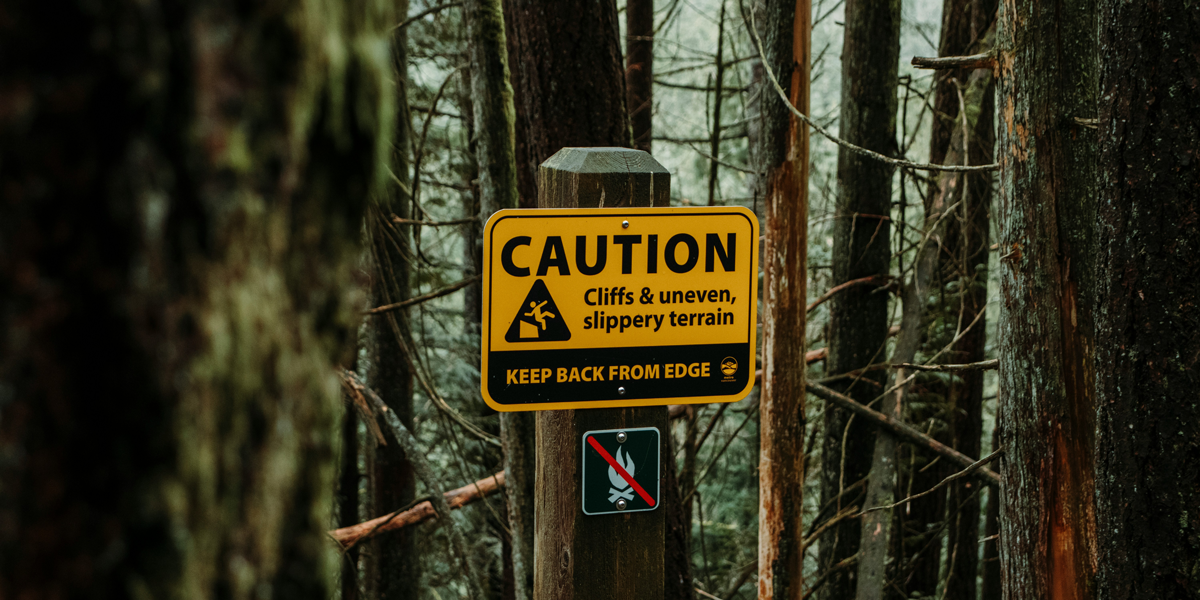
When individuals are able to avoid bearing the costs of their decisions, they can be inclined towards more risky and unethical behaviour.
Sailing across the open sea in a tall ship laden with trade goods is a risky business. All manner of misfortune can strike, from foul weather to uncharted shoals to piracy. Shipping businesses in the 19th century knew this only too well, so when the budding insurance industry started offering their services to underwrite the ships and cargo, and cover the costs should they experience misadventure, they jumped at the opportunity.
But the insurance companies started to notice something peculiar: insured ships were more likely to meet with misfortune than ships that were uninsured. And it didn’t seem to be mere coincidence. Instead, it turned out that shipping companies covered by insurance tended to invest less in safety and were more inclined to make risky decisions, such as sailing into more dangerous waters to save time. After all, they had the safety net of insurance to bail them out should anything go awry.
Naturally, the insurance companies were not impressed, and they soon coined a term for this phenomenon: “moral hazard”.
Risky business
Moral hazard is usually defined as the propensity for the insured to take greater risks than they might otherwise take. So the owners of a building insured against fire damage might be less inclined to spend money on smoke alarms and extinguishers. Or an individual who insures their car against theft might be less inclined to invest in a more reliable car alarm.
But it’s a concept that has applications beyond just insurance.
Consider the banks that were bailed out following the 2008 collapse of the subprime mortgage market in the United States. Many were considered “too big to fail”, and it seems they knew it. Their belief that the government would bail them out rather than let them collapse gave the banks’ executives a greater incentive to take riskier bets. And when those bets didn’t pay off, it was the public that had to foot much of the bill for their reckless behaviour.
There is also evidence that the existence of government emergency disaster relief, which helps cover the costs of things like floods or bushfires, might encourage people to build their homes in more risky locations, such as in overgrown bushland or coastal areas prone to cyclone or flood.
What makes moral hazards “moral” is that they allow people to avoid taking responsibility for their actions. If they had to bear the full cost of their actions, then they would be more likely to act with greater caution. Things like insurance, disaster relief and bank bailouts all serve to shift the costs of a risky decision from the shoulders of the decision-maker onto others – sometimes placing the burden of that individual’s decision on the wider public.
Perverse incentives
While the term “moral hazard” is typically restricted examples involving insurance, there is a general principle that applies across many domains of life. If we put people into a situation where they are able to offload the costs of their decisions onto others, then they are more inclined to entertain risks that they would otherwise avoid or engage in unethical behaviour.
Like the salesperson working for a business they know will be closing in the near future might be more inclined to sell an inferior or faulty product to a customer, knowing that they won’t have to worry about dealing with warranty claims.
This means there’s a double edge to moral hazards. One is born by the individual who has to resist the opportunity to shirk their personal responsibility. The other is born by those who create the circumstances that create the moral hazard in the first place.
Consider a business that has a policy saying the last security guard to check whether the back door is locked is held responsible if there is a theft. That might give security guards an incentive to not check the back door as often, thus decreasing the chance that they are the last one to check it, but increasing the chance of theft.
Insurance companies, governments and other decision-makers need to ensure that the policies and systems they put in place don’t create perverse incentives that steer people towards reckless or unethical behaviour. And if they are unable to eliminate moral hazards, they need to put in place other policies that provide oversight and accountability for decision making, and punish those who act unethically.
Few systems or processes will be perfect, and we always require individuals to exercise their ethical judgement when acting within them. But the more we can avoid creating the conditions for moral hazards, the less incentives we’ll create for people to act unethically.

BY The Ethics Centre
The Ethics Centre is a not-for-profit organisation developing innovative programs, services and experiences, designed to bring ethics to the centre of professional and personal life.
Ethics in your inbox.
Get the latest inspiration, intelligence, events & more.
By signing up you agree to our privacy policy
You might be interested in…
Opinion + Analysis
Business + Leadership, Relationships
There are ethical ways to live with the thrill of gambling
Opinion + Analysis
Business + Leadership
Explainer: Getting to know Richard Branson’s B Team
Opinion + Analysis
Business + Leadership, Science + Technology
MIT Media Lab: look at the money and morality behind the machine
Opinion + Analysis
Business + Leadership, Society + Culture
Four causes of ethical failure, and how to correct them
Blindness and seeing

‘Anyone who says that life matters less to animals than it does to us has not held in his hands an animal fighting for its life’. Elizabeth Costello, from J. M. Coetzee’s The Lives of Animals
‘Don’t think, but look!’ – Ludwig Wittgenstein, Philosophical Investigations
Philosophical debates about animal welfare can appear abstruse. Much scholarly ink has been spilt over whether animals possess the requisite features—an interest in the future, an ability to suffer, a mind—that would ground our duties towards them. I wonder, however, if theoretical arguments of this sort really do justice to the issue at hand, which seems not so much a matter of moral disagreement as a radical difference in ways of seeing. What for the animal rights activist is a mechanised holocaust of unconscionable scale is for the meat-eater an institution that betters their well-being. The most pressing issue, as I see it, is not whether animals have rights, but whether we are able to see them at all as fellow creatures inhabiting the same world and sharing our vulnerabilities.
In J.M. Coetzee’s novella, The Lives of Animals, the elderly novelist Elizabeth Costello is invited to give an address at Appleton College. Her chosen theme being on our treatment of animals, she prefaces her lecture by exhibiting what she calls a ‘wound’: a scar from being exposed to the haunting nature of our treatment of animals, of being surrounded by well-meaning human beings who remain bewildering blind to the atrocities she alone perceives.
Throughout the novella, Costello discusses and answers arguments but never as the theorising philosopher. When an opponent suggests that life and death cannot be to animals, who lack a sense of identity, what it is to us, she responds by the line quoted in the epigraph of this piece, that whoever would say so has not held in their hands an animal fighting for its life, a line which I find stunning. Never mind our favoured theory of the mind, can’t you see it is suffering?
Here is an affirmation of our exposure to the suffering of animals, an involuntary confrontation, before which what is called upon is not our reason but an anguished response that is a testament to our humanity. Costello is not a vegetarian out of moral convictions; instead, she insists ‘“it comes out of a desire to save my soul”’– out of a vivid awareness of her exposure. There is a sense in which any attempt at philosophising inevitably ends up deflecting us away from that immediate reality, the animals in our hands.
Costello provocatively compares the meat industry to the Holocaust. Her point, I take it, is linked to what Stanley Cavell has called ‘soul blindness’: a failure to see another human as human. Primo Levi, in his Survival in Auschwitz, vividly recalls the look from a Nazi examiner, which ‘came as if across the glass window of an aquarium between two beings who live in different worlds’. What we find so accursed about the examiner, I think, is not his false moral beliefs – rather, there seems to us a critical defect in their sensibility, a blindness to humanity which stings.
We find another illustration of ‘soul blindness’ in the film Blade Runner, which imagines a world where human-like ‘replicants’ are mass-produced and enslaved, and those who escape are tracked down.
At first pass, we might see Blade Runner as a film noir exploring the boundary between humans and intelligent replicants; yet when we realise that the replicants, who can think, feel, and interact exactly like humans, are perhaps denied moral status only by the technical stipulation that ‘humans’ are those with a specific biology, the film takes on a more sinister meaning. In particular, it might shock us with how easily we become blinded to the living humanity of another, when some abstract, in hindsight irrelevant pieces of information are introduced – ‘They do not have DNA’; or ‘They are a Jew’.
Animal rights activists often point to the difference in our treatment of pets and those whom we eat for meat; but rather than dismissing it as a sign of our irrationality, if not hypocrisy, the datum ought to be probed further. What is different is a way of seeing: the pets are companions, family members, whom we acknowledge as fellow creatures, while the pigs are just food.
Many times I have felt deeply perturbed, flipping through an illustrated children’s book, when I saw the image of a smiling pig with just the right amount of anthropomorphism that it looks uncanny. Those are eyes which I do not dare meet. The knowledge inside those images, that a pig is also a being capable of feelings and suffering, is knowledge too terrible to bear – we have been raised to suppress it. If he could explain the examiner’s look, Levi tells us, he would also have explained the insanity of the Third Reich. We might make a parallel statement about animals: if one could explain the way we look upon animals as mere food and not living creatures like us, then one would also have explained our treatment of animals.
Here is what I think the three cases – our treatment of animals, the Holocaust, and the enslavement of replicants – have in common: drawing on an idea of Simone Weil, they are issues on a separate moral plane from those to be afforded intellectualised debate. We could argue about why slavery is wrong, but we should not argue over if it is wrong. I am not saying that we should give up persuasion and begin accusing each other of the monstrosity of eating meat; rather, what I claim is that abstract disputes over rights and permissions seriously misrepresent the moral terrain.
Levi remarks that one of the things the camp taught him was ‘how vain is the myth of original equality among men’. What use is there of a theory of human rights if the abuser does not see you as a human at all? This is why Costello appeals not to philosophy, but to imagination and poetry: a chasm of sensibility can only be bridged by changes in the way of seeing. And why should our response to animals be out of a sense of duty? Often, the more humane response may well be one out of kindness and a sense of fellowship.
In today’s world, our blindness to each other’s humanity is unfortunately still all too prevalent – the images that emerge from recent conflicts confirm it. One could say, however, that our blindness to the suffering of animals is just as distressing. What is most frightening is perhaps not that we come up with the wrong moral beliefs, but that we lose the ability to see animals, and other humans, as fellow beings who are like us.
‘Blindness and seeing‘ by David He is one of the Highly Commended essays in our Young Writers’ Competition. Find out more about the competition here.

Ethics in your inbox.
Get the latest inspiration, intelligence, events & more.
By signing up you agree to our privacy policy
You might be interested in…
Explainer
Health + Wellbeing, Relationships
Ethics Explainer: Eudaimonia
Explainer
Relationships
Ethics Explainer: Lying
Opinion + Analysis
Health + Wellbeing, Relationships
Seven COVID-friendly activities to slow the stress response
Opinion + Analysis
Relationships
Who are you? Why identity matters to ethics
BY David He
David is a pure mathematics honours student at the University of Sydney, having completed double majors in mathematics and philosophy there. In his free time he likes to read and play Go, a board game. He aspires to become a mathematician and/or a writer someday.
BFSO Young Ambassadors: Investing in our future leaders

BFSO Young Ambassadors: Investing in our future leaders
Opinion + AnalysisBusiness + Leadership
BY The Ethics Centre 15 FEB 2024
In 2018 ethics became a household word in financial services, partly because of the Hayne Royal Commission which identified the unethical behaviours and cultures within the industry. While behavioural and cultural change starts with individuals, empowerment doesn’t come easy, particularly at the beginning of one’s career.
Aimed at supporting young professionals, the Banking and Financial Services Oath (BFSO) Young Ambassador Program encourages people early in their careers to adopt a strong ethical foundation in the banking and financial services industry.
We sat down with three former BFSO alumni, Max Mennen (NAB), Michelle Lim (RBA), and Elle Griffin (CBA), to discuss the impact the program has had on them, and what ethics looks like in an industry that’s been through turmoil and has a responsibility to function above and beyond the legal requirements.
TEC: What first drove you to apply for the BFSO program?
Max: My experience in banking up until I did the BFSO program was in a customer facing role and I was exposed to a lot of opinions about banks – why they’re flawed and their wrongdoings. And that wasn’t just from customers, that was just the general introduction that I had while working.
The BFSO certainly aligned with me questioning these sorts of opinions that I’d heard, finding the truth to them and more so seeing how you can rectify [the behaviours that cause] those opinions. It helped me interrogate what work I was doing and how I could make it better.
Elle: I wanted to make an impact outside of my day-to-day role and feel like I was contributing to something bigger than just the bank, but to the community. It also gave me a real responsibility to think about broader issues going into becoming a banker, that we all had a role to play in improving our profession.
Michelle: Coming from a psychology background, I was really interested in contributing to understanding the culture and the conduct that led to all the issues discussed in the 2017 Hayne Royal Commission. I wanted to contribute to those discussions and hopefully be part of that cultural shift.
TEC: Five years on from the Royal Commission, where do you see the role of the BFSO?
Elle: I have always strongly identified with the idea that the BFSO promotes that we are part of a profession, which means that we are more than just employees of our particular bank. Instead, being a professional means that you have competence, care and diligence about how you approach what it is that you do.
I think that what the Hayne Royal Commission showed was that people didn’t approach banking from that kind of noble profession mindset and the BFSO fills that void for the industry. As long as people consider what we do as a profession, we’ll go a long way to avoiding those outcomes in the future.
Max: I think the BFSO could be valued in any industry because what it mainly showed me was an insight into the value chain of what, in our case, the financial services sector provides. It has an impact on the broader economy, but certainly on everyday customers as well. It’s pretty easy to just view your job quite narrowly as the process that you play rather than looking at the impact of what you stand for and what the organisation does. It certainly gave me much better recognition for the role that financial services play and how they can do it better.
TEC: Do you feel there’s more of an appetite for financial institutions to allow time for participating in programs like the BFSO?
Michelle: The BFSO gave me courage and made me feel empowered to lean into something that I was always interested in, which is social justice and equality and equity. It brings people that are like-minded together who are quite young and new in their career, and it gives them this sense of empowerment and courage to actually lean into what we value and what our principles are and then echo and extend that out and amplify that within our organisations and then beyond.
When I started, five or six years ago, I was in the risk culture space and that was still quite new but now I’ve seen that space grow so much and there’s become a heavy focus into conduct and risk. I think organisations are really seeing the value of carving out dedicated time for ethical leadership and what that looks like, and mapping that back to my ethical framework for my organisation and what our purpose is.
TEC: Has it impacted the way you behave long-term in your role?
Elle: I feel very fortunate to have done the program very early in my career because it gives you a worldview, and a really clear way to interpret who you are and the work that you do day to day working in the financial services sector. And it translates to any role that I’ve had in the past five years. It’s helped me realise that not only that you should feel comfortable to speak up, but that I’m required to speak up and I should be speaking up.
TEC: What would you say to somebody wanting to apply to the BFSO?
Michelle: Give 110% and don’t be afraid to ask questions. And invest in the networks and relationships you’ll make. The biggest thing for me is the relationships.
Max: I would say the impacts can be exponential and they’ll last with you.
Applications for the 2024 BFSO Young Ambassador Program are now open until 15 March. Find out more here.

BY The Ethics Centre
The Ethics Centre is a not-for-profit organisation developing innovative programs, services and experiences, designed to bring ethics to the centre of professional and personal life.
Ethics in your inbox.
Get the latest inspiration, intelligence, events & more.
By signing up you agree to our privacy policy
You might be interested in…
Opinion + Analysis
Business + Leadership
Getting the job done is not nearly enough
Opinion + Analysis
Business + Leadership
Are diversity and inclusion the bedrock of a sound culture?
Opinion + Analysis
Business + Leadership, Health + Wellbeing, Relationships
Moving on from the pandemic means letting go
Opinion + Analysis
Business + Leadership
Workplace ethics frameworks
Gen Z and eco-existentialism: A cigarette at the end of the world

Gen Z and eco-existentialism: A cigarette at the end of the world
Opinion + AnalysisClimate + EnvironmentHealth + Wellbeing
BY Layla Zak-Volpato 12 FEB 2024
“Where ignorance is bliss, tis folly to be wise.” – Thomas Grey
Gen Z live inside of an hourglass. The sand leaks steadily from underneath our feet at an imperceptible rate so that we don’t realise the ground is slipping away until we are plummeting toward the bottleneck. The 21st century has been characterised by the impending, seemingly unstoppable doom of climate change and ecosystem collapse. There is a rising epidemic amongst young people of feelings of anxiety and dread towards a future made uncertain by global warming. This sensation, the drop in the pit of our stomachs from a fall that doesn’t seem to be ending, has caused mixed reactions amongst Gen Z. While those who use sustainability as an antidote to their anxiety are praised, others who appear to act in complete denial of climate change are frequently vilified. Young people who smoke cigarettes and partake in fast fashion appear to show blatant disregard for the impact of their actions on the climate.
Unethical behaviours amongst young people are often attributed to delinquency and delayed cognitive development. While, in some cases, this may be true, the impact of climate change on moral decision-making in today’s youth is often overlooked. Gen Z hold the heavy responsibility of reversing the catastrophic impacts of climate change. As such, partaking in activities that cause both physical and environmental damage may stem from an attitude of wilful ignorance that allows young people to feel momentary freedom from this burden. With a reputation as one of the most climate-conscious generations,
Gen Z is often held to high moral standards regarding social and environmental issues. These standards make very little allowance for complex reactions to climate change that may appear to older generations as apathy. Subsequently, young people are owed a greater deal of compassion and understanding from older generations for their reactions to this unimaginable catastrophe.
Young people of the 21st century appear to be both driving and abating the effects of climate change. Some of the world’s most passionate and radical anti-climate change organisations have been spearheaded by Gen Z – reflecting their climate-consciousness. Yet, paradoxically, young people are the biggest users of disposable vapes and are frequent patrons of fast fashion giants. It’s an easy conclusion to draw that these behaviours (in a time of rampant climate change) seem to reflect opposing ideologies at best and a lack of general empathy at worst. In an article for the online publication Refinery29, ‘Gen Z & the fast fashion paradox’, Fedora Abu describes young people as “environmentally engaged yet seduced by what’s new and ‘now’”.
This attitude represents an oversimplification of the mental and ethical impacts of climate change on young people. Abu depicts Gen Z as a generation whose ethical and moral beliefs are easily corrupted by consumerism-driven desire. Many adults are quick to overlook the extreme mental load felt by Gen Z toward climate change and the emotional maturity that lends itself to this responsibility. Amongst young people, there has been a notable rise in feelings of eco-anxiety – described by the American Psychological Society as a “chronic fear of environmental doom”. Climate-related mental health issues manifest themselves through trauma, shock, substance abuse and depression.
In an online article published by the University of Melbourne about the rise of climate anxiety amongst young people, recommendations to relieve negative emotions include partaking in sustainable consumption (recycling, picking up rubbish etc.) and becoming involved in environmental campaigns. While there is no doubt that sustainable consumption and activism are positive, they may not adequately alleviate the anxiety felt by some young people. Those who structure their lives around sustainability and those who indulge in unsustainable practices may seem like opposing forces; they are, in fact, two sides of the same highly anxious, existential coin – both equally valid reactions to a sense of disillusionment with 21st-century adulthood.
Young people adopted their expectations of adulthood from the media they consumed as children. However, within a rapidly changing world, many feel a sense of disconnect with an experience of adulthood characterised by climate anxiety. Essentially, there’s a resounding sense that we haven’t gotten what was promised. As a child, my mother and I spent our bonding time in front of the TV – together she shared with me the television shows and movies that characterised her childhood and early adulthood. Before I was old enough to recognise it, the formulaic American sitcoms of the 90s and grand, romantic flicks of the 80s (often accompanied by a soundtrack of synth-heavy ballads) had begun to construct my worldview.
Watched in retrospect and with the use of a fully developed brain, however, one aspect is glaringly missing from the portrayal of adulthood presented by the media that raised us – the omnipresent threat of climate change. While only linear time is to blame for the fact that media from the past can’t represent our current reality, there is a sense of cognitive dissonance amongst young people between the future we were raised to expect, and the way adulthood has unfolded before us. For young people, the rampant, mindless consumerism of the 80’s and 90’s appears like a neon-lit mirage. The increased uptake of sustainable practices by large corporations is a movement of the 21st century. As such, many young people have rarely made a purchase without considering the environment.
For older generations, sustainability may provide feelings of empowerment and agency against the overwhelming monolith of climate change. However, sustainable living requires a significant amount of intentional thought against habitual, unsustainable habits built over generations. Within the domestic space, in particular, adopting sustainable approaches such as ‘zero waste’ living requires a significant mental load – the often invisible responsibilities of management and organisation. Whilst young people are rarely the organisers of large households, I believe a similar burden is felt towards sustainable consumerism.
Sustainable consumerism is often denoted as ‘morally good’. Thus, any action or purchase that results in waste or promotes unsustainable production carries negative moral connotations.
Climate-based moral decision-making is largely all that young people have known. In some form, choosing not to consider the planet in every choice can provide young people with a prized commodity – freedom from pressure to act with morality.
For young people, living in wilful ignorance of climate change and damaging the planet (and their bodies) in the process is a form of catharsis and escapism. Drinking from plastic water bottles, smoking chemical-filled cigarettes and purchasing clothes mass-produced in sweatshops allows Gen Z to experience a pantomime of the careless, invincible youth that was promised.
Viewed through a binary moral lens, older generations are quick to criticise young people as careless and apathetic. In reality, there’s an unshakable sense of dread amongst young people that a natural disaster will take our lives by the time we reach our parents’ age. In Thomas Grey’s poem ‘Ode on a distant prospect of Eton college’, he states “Where ignorance is bliss, tis folly to be wise”. In essence, if knowing something harmed you, would you be better off not knowing at all? If there’s one thing that Gen Z know, it’s that there is unavoidable harm in their future. If that is the case, and there’s nothing that can be done, may as well have a cigarette.
‘Gen Z and eco-existentialism: A cigarette at the end of the world‘ by Layla Zak-Volpato is one of the Highly Commended essays in our Young Writers’ Competition. Find out more about the competition here.

Ethics in your inbox.
Get the latest inspiration, intelligence, events & more.
By signing up you agree to our privacy policy
You might be interested in…
Opinion + Analysis
Health + Wellbeing, Relationships
Moral fatigue and decision-making
Opinion + Analysis
Health + Wellbeing, Politics + Human Rights
Vaccines: compulsory or conditional?
Big thinker
Health + Wellbeing, Relationships
Big Thinker: Shulamith Firestone
Opinion + Analysis
Health + Wellbeing, Science + Technology
The ethics of drug injecting rooms
BY Layla Zak-Volpato
Layla is a 22-year-old writer and poet living and working in and around Eora/Sydney. With an educational background in ecology and wildlife conservation, her work focuses heavily on the ethical and moral dilemmas of the anthropocene. Through a creative lens, Layla examines the intersections between gender, identity, philosophy and environmental issues. She aspires to use these themes as the backbone for a career as a scientific communicator who utilises both creative and informative literary forms.
Why sometimes the right thing to do is nothing at all

Why sometimes the right thing to do is nothing at all
Opinion + AnalysisPolitics + Human RightsSociety + Culture
BY Dr Tim Dean 8 FEB 2024
How a 1990s science-fiction show reminds us that just because we can do something, it doesn’t always mean we should.
Captain Jean-Luc Picard commands the USS Enterprise-D, a 600-metre-long starship that runs on antimatter, giving it virtually unlimited energy, and wielding weapons of devastating power.
In its journeys across the stars, depicted in Star Trek: The Next Generation, the crew of the Enterprise-D is often forced to draw on all its resources to overcome tremendous challenges. But that’s not what the show is really about.

If there’s one theme that pervades this iteration of Star Trek, it’s not how Picard and his crew use their prodigious power to get their way, it’s how their actions are more often defined by what they choose not to do. Countless times across the 176 episodes of the show, they’re faced with an opportunity to exert their power in a way that benefits them or their allies, but they choose to forgo that opportunity for principled reasons. Star Trek: The Next Generation is a rare and vivid depiction of the principle of ethical restraint.
Consider the episode, ‘Measure of a Man’, which sees Picard defy his superiors’ order to dismantle his unique – and uniquely powerful – android second officer, Data. Picard argues that Data deserves full personhood, despite his being a machine. This is even though dismantling Data could lead to the production of countless more androids, dramatically amplifying the power of the Federation.

One of the paradigmatic features of The Next Generation is its principle called the Prime Directive, which forbids the Federation from interfering with the cultural development of other planets. While the Prime Directive is often used as a plot device to introduce complications and moral quandaries – and is frequently bent or broken – its very existence speaks to the importance of ethical restraint. Instead of assuming the Federation’s wisdom and technology are fit for all, or using its influence to curry favour or extract resources from other worlds, it refuses to be the arbiter of what is right across the galaxy.
This is an even deeper form of ethical restraint that speaks to the liberalism of Gene Roddenberry, Star Trek’s creator. The Federation not only guides its hand according to its own principles, but it also refuses to impose its principles on other societies, sometimes holding back from doing what it thinks is right out of respect for difference.
The 1990s was another world
There’s a reason that restraint emerged as a theme of Star Trek: The Next Generation. It was the product of 1990s America, which turned out to be a unique moment in that country’s history. The United States was a nation at the zenith of its power in a world that was newly unipolar since the collapse of the Soviet Union.
It was an optimistic time, one that looked forward to an increasingly interconnected globalised world, where cultures could intermix in the “global village,” with its peace guarded by a benevolent superpower and its liberal vision. At least, that was the narrative cultivated within the US.
In a time where the US was unchallenged, moral imagination turned to what limits it ought to impose on itself. And Star Trek did what science fiction does best: it explored the moral themes of the day by putting them to the test in the fantasy of the future.
Today’s world is different. It’s now multipolar, with the rise of China and belligerence of Russia coinciding with the erosion of America’s power, political integrity and moral authority. The global outlook is more pessimistic, with the shadow of climate change and the persistence of inequality causing many to give up hope for a better future. Meanwhile, globalisation and liberalism have retreated in the face of parochialism and authoritarianism.
When we see the future as bleak and feel surrounded by threats, ethical restraint seems like a luxury we cannot afford. Instead, the moral question becomes about how far we can go in order to guard what is precious to us and to keep our heads above literally rising waters.
The power not to act
Yet ethical restraint remains an important virtue. It’s time for us to bring it back into our ethical vocabulary.
For a start, we can change the narrative that frames how we see the world. Sure, the world is not as it was in the 1990s, but it’s not as bleak as many of us might feel. We can be prone to focusing on the negatives and filling uncertainties with our greatest fears. But that can distort our sense of reality. Instead, we should focus on those domains where we actually have power, as do many people living in wealthy developed countries like Australia.
And we should use our power to help lift others out of despair, so they’re not in a position where ethical restraint is too expensive a luxury. Material and social wealth ultimately make ethics more affordable.
Just as importantly, restraint needs to become part of the vocabulary of those in positions of power, whether that be in business, community or politics.
Leaders need to implicitly understand the crucial distinction between ought and can: just because they can do something, it doesn’t mean they should.
This is not just a matter of greater regulation. For a start, laws are written by those in power, so they need to exercise restraint in their creation. Secondly, regulation often sets a minimum floor of acceptable behaviour rather than setting bar for what the community really deserves. It also requires ethical literacy and conviction to act responsibly within the bounds of what is legally permitted, not just a tick from a compliance team.
If you have power, whether you lead a starship, a business or a nation, then the greater the power you wield, the greater the responsibility to have to wield it ethically, and sometimes that means choosing not to wield it at all.

Ethics in your inbox.
Get the latest inspiration, intelligence, events & more.
By signing up you agree to our privacy policy
You might be interested in…
Opinion + Analysis
Relationships, Society + Culture
How can you love someone you don’t know? ‘Swarm’ and the price of obsession
Opinion + Analysis
Politics + Human Rights
Big Brother is coming to a school near you
Opinion + Analysis
Relationships, Science + Technology, Society + Culture
5 things we learnt from The Festival of Dangerous Ideas 2022
Opinion + Analysis
Business + Leadership, Politics + Human Rights
Who’s afraid of the strongman?
BY Dr Tim Dean
Dr Tim Dean is Philosopher in Residence at The Ethics Centre and author of How We Became Human: And Why We Need to Change.
Political promises and the problem of ‘dirty hands’

Political promises and the problem of ‘dirty hands’
Opinion + AnalysisPolitics + Human RightsBusiness + Leadership
BY Simon Longstaff 6 FEB 2024
The decision by the Albanese Government to amend the form of the ‘Stage Three Tax Cuts’ – in breach of a much-repeated election promise – has not only unleashed the predictable storm of criticism from the Federal Opposition. More seriously, it has once again raised the question of integrity in politics. Yet, this is a rare case where a broken promise is in the public interest.
The making and breaking of political promises have a special significance in democracies like Australia. Governments derive their legitimacy from the consent of the governed – and consent is meaningless if it is the product of misleading or deceptive information. That is why politicians who deliberately lie in order to secure power should be denied office. It is also why prospective governments should be extremely cautious when making risky promises.
Yet, to argue that ‘keeping promises’ is an essential aspect of building and maintaining trust and legitimacy does not entail that a promise must be kept under any and every circumstance. There may be times when it is literally impossible to keep one’s word – for example, when a government commits to build a facility in a specific location that is later destroyed in a flood. And then there are circumstances where the context is so fundamentally altered as to make the keeping of a promise an act of folly or worse, irresponsibility. President Zelensky is bound to have made many promises to the people of Ukraine prior to the Russian invasion – at least some of which it would be irresponsible to keep in the middle of a war that threatens the very existence of the State.
Some people – notably those who adopt consequentialist forms of ethical reasoning – will argue that a promise should always be broken if, by doing so, a superior outcome is achieved. Others – notably those who place a higher value on acting in conformance with duty (irrespective of the consequences) – will argue that promises should never be broken. I am not inclined to line up with the ‘purists’ on either side. Instead, I prefer an approach in there is acceptance – across the political spectrum – that:
- There is a clear presumption in favour of keeping promises.
- Promises may be broken, but with extreme reluctance, when genuinely in the public interest to do so. That is the breach cannot be justified because it advances the private political interests of an individual or party.
- Any breach must be only to the extent necessary to realise the public interest – and no more.
- Those who break a promise should publicly acknowledge that to do so is wrong and that they are responsible for this choice. That is, they should not seek to deny or lessen the ethical significance of their choice.
Let’s consider how these criteria might be applied in the case of the ‘Stage Three Tax Cuts’.
The key question concerns whether or not it is demonstrably in the public interest to amend the legislated package as it stands. This question cannot be answered by looking at the economic and social implications alone. There is a real risk that trust in government will be eroded – even amongst those who benefit from the changes. And that further erosion in the ‘ethical infrastructure’ of the nation harms us all – not least because of its own tangible economic effects. So, that fact must be weighed in the balance when evaluating the public interest. However, Australia’s ethical infrastructure is also weakened by widening inequality – and by a growing sense of desperation amongst those who feel that their struggles are as much a product of unfairness as they are of forces beyond anyone’s control.
We should never forget that the current cost of living crisis is a form of ethical failure. It was neither inevitable nor necessary. At its root lie the choices made by those who control the levers of economic and political power. As things stand, the community does not trust them to ensure an equitable distribution of burdens and benefits. That widespread popular sentiment is reinforced by daily experience. Ethics – which deals with the way in which choices shape the world we experience – lies at the heart of the current crisis.
So, if changes to the ‘Stage Three Tax Cuts’ can be shown to tilt the table in favour of a more fair and equal Australia, it will have a strong claim to be in the public interest – not least by demonstrating that power can be exercised for the good of all rather than the influential few. Thus, some measure of trust and democratic legitimacy might be restored.
Two final points. First, even with the changes, every Australian taxpayer will continue to be better off than the day before the changes come into effect. To that extent, the policy satisfies the third of the conditions listed above.
Which brings me to the final test: will the Prime Minister and his colleagues accept that the breaking of a political promise is wrong-in-itself – even if necessary to advance the public interest? That would be the brave thing to do. It would involve Anthony Albanese in acknowledging one of the toughest problems in political philosophy – the problem of ‘dirty hands’. This is when a person of principle, as Albanese clearly is, decides to accept the burden of violating their own, deepest ethical sense for the good of others. Then their sense of the moral injury they do to themselves exceeds the bounds of all criticism directed to them by others. They are wounded – and they let us see this.
I believe Anthony Albanese when he says that ‘his word is his bond’. Now, he must own this commitment and acknowledge the cost he and his government must bear in serving the public interest. That will not spare him the pointed criticism of political opponents or of those who sincerely feel their trust betrayed or their interests diminished. However, that honest reckoning is the sacrifice a good person must sometimes make in order better to serve the people.
Image by Mick Tsikas, AAP Photo

Ethics in your inbox.
Get the latest inspiration, intelligence, events & more.
By signing up you agree to our privacy policy
You might be interested in…
LISTEN
Business + Leadership
Leading With Purpose
Opinion + Analysis
Society + Culture, Business + Leadership
How to tackle the ethical crisis in the arts
Opinion + Analysis
Politics + Human Rights, Climate + Environment
What we owe each other: Intergenerational and intertemporal justice
Opinion + Analysis
Business + Leadership
Ethical redundancies continue to be missing from the Australian workforce
BY Simon Longstaff
Simon Longstaff began his working life on Groote Eylandt in the Northern Territory of Australia. He is proud of his kinship ties to the Anindilyakwa people. After a period studying law in Sydney and teaching in Tasmania, he pursued postgraduate studies as a Member of Magdalene College, Cambridge. In 1991, Simon commenced his work as the first Executive Director of The Ethics Centre. In 2013, he was made an officer of the Order of Australia (AO) for “distinguished service to the community through the promotion of ethical standards in governance and business, to improving corporate responsibility, and to philosophy.” Simon is an Adjunct Professor of the Australian Graduate School of Management at UNSW, a Fellow of CPA Australia, the Royal Society of NSW and the Australian Risk Policy Institute.
Day trading is (nearly) always gambling

Day trading is (nearly) always gambling
Opinion + AnalysisBusiness + Leadership
BY The Ethics Centre 2 FEB 2024
It could just be our algorithms, but over the past couple of years there’s been huge increase in the number of online share trading apps advertising across social platforms, YouTube and broadcast/streaming TV, promising quick and easy access to the share trading market.
Historically, buying and selling shares through a stock broker and getting professional financial advice has been limited to high net worth individuals (with the cost of professional financial advice in Australia ranging from $2000 to $5000-plus per annum). But these apps promise an easy, low-barrier entry point and potential side hustle for people to start buying and selling shares from the comfort of their couch or even their bathroom.
You don’t need any knowledge of the market and its statistics to start buying and selling at this entry level. As noted in The Ethics Centre’s latest podcast Life and Shares, nearly 5000 Australians opened an online account and started trading in the months after Covid-19 hit our shores, holding their shares for one day on average, with 80% losing money (although most would be classified as ‘toe dippers’ rather than traders).
The issue is, many of these trading apps are gamified with incentives, like points accumulation and (relatively valueless) gifts or benefits the more trades you make. These companies charge a fee for every trade, so it’s in their interest for customers to make as many trades as possible. Research by the Ontario Securities Commission found that groups using gamified apps, “made around about 40% more trades than control groups.”
This implicitly encourages day trading, where buyers play on the volatility of the market by buying and selling securities quickly, often in the same day, in the hope of turning a quick profit.
“The general market wisdom is that time in the market generally beats timing the market,” says Angel Xiong, head of the finance department in the School of Economics at RMIT.
Day trading flips this by trying to predict rapid price movements based off the news of the day, and this is where it starts to verge into gambling-adjacent behaviour.
Cameron Buchanan, of ASIC accredited online training centre, the International Day Trading Academy, says, “people often treat trading like they are gambling. And the main reason is because most gamblers don’t expect to lose. So emotionally, a lot of us are hardwired to not [want to] experience loss. We want certainty. And if we are coming into the trading markets, there’s a lot of uncertainty in it.”
Even if you know your stats and have a plan for your buy and sell points, Cameron says, “I know from my own experience, you get so locked into that trade and the emotion is so strong. You don’t want to take that loss because of the hope that the market turns around and gives you that positive feeling.”
Angel Xiong, Head of Finance in the School of Economics at RMIT, studies behavioural financial biases. “One of these biases is something we call attribution bias,” Xiong says, “which means people tend to attribute their success to strategy and skills, but when they lose money, they attribute it to, ‘Oh, it’s just bad luck’. So in terms of whether they [day traders] have strategy, it is really up to debate.” Consequently, Xiong believes, “stock market trading and gambling in casinos or online betting are very similar.”
As Ravi Dutta Powell, Senior Advisor at the Behavioural Insights Team, notes in episode 4, “the more that you gamify it, the more it starts to move into that gambling space and becomes less about the underlying financial products and more about engagement with the app and trying to get people to spend more money even though that may not necessarily be in their best financial interests… The real cost is the increased risk of losing the money you’ve invested because you’re making more trades.”
Addiction specialists, like the clinical psychologist interviewed in episode 3, warn that day traders can develop trading habits that closely resemble gambling addiction. “Certain forms of trading are addictive in and of itself,” the psychologist says. “The more high volatility securities or platforms where you can be in debt to the platform. Those are more risky plays and those can become quite addictive. As somebody who works in gambling, share trading looks identical to that and actually responds to treatment for gambling.”
“As somebody who works in gambling, share trading looks identical to that and actually responds to treatment for gambling.”
Symptoms of addictive behaviour include developing an obsession with trading, chasing winning streaks, trying to recoup losses, investing larger and larger amounts to chase the thrill, buying into the Sunk Cost Fallacy, and investing money in shares you haven’t properly researched.
But even if you’re going for “time in the market,” researching your buys thoroughly and buying blue chip stocks, it can still go bad due to that aforementioned “volatility”. Look at the effect of the Covid-19 pandemic on the market, or the stock market crashes of 2002 and 2008, and it becomes clear that no stock is a “sure win”, especially when your emotions are pushing you to avoid a loss and hold on for the market to turn around.
All you can accurately control, as Life and Shares host Cris Parker puts it in episode 4, is to ask yourself, “What are my values? How much am I prepared to lose?” – and brush up on your financial literacy before you start dropping bundles.
Life and Shares unpicks the share market so you can make decisions you’ll be proud of. Listen now on Spotify and Apple Podcasts.

Ethics in your inbox.
Get the latest inspiration, intelligence, events & more.
By signing up you agree to our privacy policy
You might be interested in…
Opinion + Analysis
Business + Leadership
Ethics of making money from JobKeeper
Opinion + Analysis
Business + Leadership
Ask an ethicist: How to approach differing work ethics between generations?
Explainer
Business + Leadership
Ethics Explainer: Social license to operate
Opinion + Analysis
Business + Leadership, Politics + Human Rights, Society + Culture
